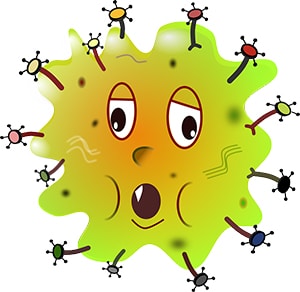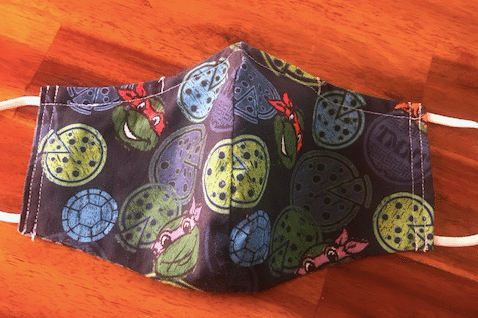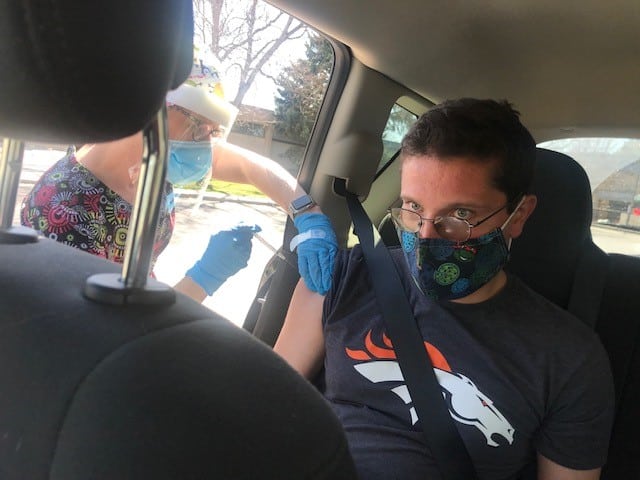How to Explain a Pandemic and the Importance of Vaccines to Your Child
By Brenda Stuart, Special Olympics Colorado Parent
The first time I tried to take my son, Jack, trick-or-treating, it was a disaster. He screamed and howled louder than any ghost or goblin wandering the neighborhood. It took him years to explain to me he was afraid of the dark, the scary masks, and most of all, the unknown. Like most children on the autism spectrum, my son had a fear of something he couldn’t understand.
The same thing is true of the recent pandemic. When Jack is kept in the dark, the masks and changes to his routine are frightening. By shedding light on the subject, we were able to ease his frustration and convince him to look forward to getting vaccinated against the coronavirus.
Explaining Germs
It’s tough to understand how something we can’t see can make us sick. By coating your hands with flour, and touching a few items in your kitchen, you can help children with intellectual disabilities understand how easy it is to contaminate everything around you. One solution? Wash your hands with soap and water often. That way, the visible dirt and invisible germs won’t spread.

Give Them Power
Most children idolize superheroes. A simple mask and cape enable Batman and Spiderman to fight just about anything. We explained to my son he didn’t need a cape, but a mask would help him keep COVID away. Our plain blue masks weren’t the most comfortable. His sister solved that problem by ordering Teenage Mutant Ninja Turtle masks. Those cartoon turtles are now my heroes!

Motivate Them
Even when they understand the importance of hand-washing and mask-wearing, it’s tough to comprehend social distancing, especially when you have a child with special needs who has spatial awareness issues. It’s even tougher to explain why he can’t take part in his swim meets or basketball games right now.
This is where we explain the importance of staying home and finding outdoor activities. While we can’t go explore the Cave of the Winds in Manitou Springs, we can enjoy outdoor hikes and gardening – as long as we stay 6-feet away from people. It’s also important to point out that the more we follow the rules, the sooner we’ll be able to get back to Special Olympics and all our other activities. This is also the time to motivate your child to roll up their sleeve and get the vaccine.
Getting the Vaccine
Let’s face it: no one enjoys getting poked with a needle. And dealing with the after-effects of a vaccine can be rough (sore arm, fatigue, etc.). Vaccines have also gotten a bad rap over the years, after one researcher claimed they caused autism. That study has since been disproven, but not before it convinced thousands against getting their children vaccinated.
Once your child understands the vaccine is the key to resuming their favorite activities, he or she will be eager to sign up. Point out the vaccine will only make them uncomfortable for a moment (or maybe a day or two if they suffer some after-effects). But quarantining and wearing a mask has made them uncomfortable for more than a year.

Jack getting his first COVID19 Vaccine
Keep in mind: The COVID vaccine is only available for people 16 and older, or for high-risk patients between 12 and 15 years old. It’s easier to explain the benefits of the vaccine than it is to explain the restrictions. But now that he understands the pros of the vaccine, my son Jack is looking forward to his second shot. He’s also looking forward to Halloween this year… and hoping the virus is contained so he can see his favorite characters trick-or-treating again.

Brenda Stuart is a Denver journalist and frequent volunteer with Special Olympics Colorado. Her son’s favorite activities are swimming, basketball, and special events like Tip-a-Cop and the Polar Plunge.